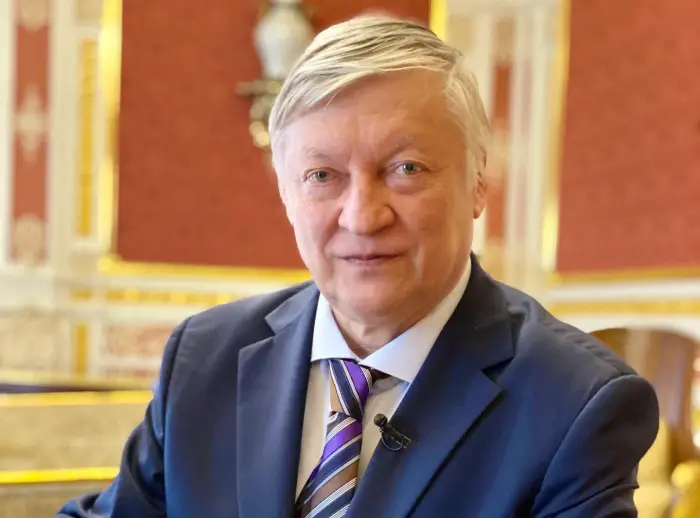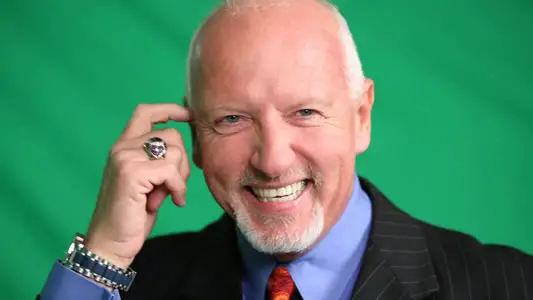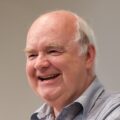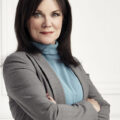Garry Kasparov Biography
Garry Kasparov {Full name- Garry Kimovich Kasparov; (Russian: Га́рри Ки́мович Каспа́ров); (Russian pronunciation: ˈɡarʲɪ ˈkʲiməvʲɪtɕ kɐˈsparəf); (Birth name- Garik Kimovich Weinstein)} is a retired Russian chess grandmaster, former world chess champion, writer, and political activist who was born on 13 April 1963, Baku, Azerbaijan SSR, Soviet Union.
Many chess enthusiasts consider him to be the greatest chess player of all time. Kasparov was ranked world No. 1 for 225 out of 228 months from 1986 until his retirement in 2005. In 1999, he achieved his peak rating of 2851 which was the highest recorded until being surpassed by Magnus Carlsen in 2013. Kasparov also holds records for consecutive professional tournament victories, 15, and Chess Oscars, 11.
In 1985 at age 22, Garry Kasparov became the youngest ever undisputed World Chess Champion after defeating then-champion Anatoly Karpov. He held the official FIDE world title until 1993 when a dispute with FIDE led him to set up the Professional Chess Association, a rival organization to FIDE.
Garry Kasparov Family
Kasparov was born to Kim Moiseyevich Weinstein (father, a Russian-Jewish), and Klara Shagenovna Kasparova (mother, an Armenian) in Baku, Azerbaijan SSR (now Azerbaijan), Soviet Union. His birth name was Garik Kimovich Weinstein. Kasparov identifies himself as Russian and has described himself as a “self-appointed Christian”, although “very indifferent”.
Kasparov came across a chess problem set up by his parents and proposed a solution to an incident that triggered his start of serious study of chess. Kasparov’s father died of leukemia when he was seven years old. He adopted his mother’s Armenian surname, Kasparova, russified as Kasparov at the age of twelve.
Garry Kasparov Wife
Kasparov was married to Masha, with whom he had a daughter before divorcing, then to Yulia, with whom he had a son before their divorce in 2005. He is currently married to Daria (Dasha) Tarasova, with whom he has two children, a daughter born in 2006 and a son born in 2015. Kasparova and his family live in New York City with Daria managing his business activities worldwide as the founder of Kasparov International Management Inc.
Garry Kasparov Age
Kasparov was born on 13 April 1963, Baku, Azerbaijan SSR, Soviet Union. In 1985, at age 22, he became the youngest ever undisputed World Chess Champion. Kasparov is 56 years old as of 2019.
Garry Kasparov’s Photo
Garry Kasparov Vs Anatoly Karpov
Garry Kasparov remained a formidable opponent for Anatoly Karpov, and the world No. 2, until the early 1990s. He fought Anatoly Karpov in three world championship matches, all of which he won: In 1986 (held in London and Leningrad), 1987 (in Seville), and 1990 (in New York City and Lyon).
The scores to the three matches were 11½–12½ (+4−5=15), 12–12 (+4−4=16), and 11½–12½ (+3−4=17) making the games extremely close. Karpov had winning chances up to the very last games in all three matches. The most outstanding was the 1987 Seville match which featured an astonishing blunder by Kasparov in the 23rd game.
Needing only a draw to win the title in the final game, Karpov cracked under time pressure at the end of the first session of play, missed a variation leading to an almost forced draw, and allowed Kasparov to adjourn the game with an extra pawn. Garry Kasparov slowly ground down Anatoly Karpov until he resigned on move 64 after a further mistake in the second session, ending the match and allowing Kasparov to keep the title.
Anatoly Karpov scored 19 wins, 21 losses, and 104 draws in 144 games in their five world championship matches.
Garry Kasparov Deep Blue
Deep Blue versus Garry Kasparov was a pair of six-game chess matches between an IBM supercomputer called Deep Blue and the then world chess champion Garry Kasparov. The first match was played in 1996 in Philadelphia and won by Kasparov.
Kasparov lost to the IBM supercomputer Deep Blue in the second match in New York which was highly publicized in 1997. He became the first world champion to lose a match to a computer under standard time controls.
While discussing the match in December 2016, in a podcast with neuroscientist Sam Harris, Garry Kasparov advised of a change of heart in his views of this match. He stated that: “While writing the book I did a lot of research – analysing the games with modern computers, also soul-searching – and I changed my conclusions. I am not writing any love letters to IBM, but my respect for the Deep Blue team went up, and my opinion of my own play, and Deep Blue’s play, went down. Today you can buy a chess engine for your laptop that will beat Deep Blue quite easily.”
Kasparov was the holder of the “Classical” World Chess Championship until 2000 when he was defeated by Vladimir Kramnik. Garry Kasparov continued winning tournaments and was the world’s highest-rated player when he retired from professional chess in 2005.
Garry Kasparov Retirement
On 10 March 2005, Kasparov announced that he would retire from serious competitive chess after winning the prestigious Linares tournament for the ninth time. He devoted his time to politics and writing after his retirement. He joined as a member of The Other Russia, a coalition opposing the administration and policies of Vladimir Putin after forming the United Civil Front movement. Garry Kasparov announced an intention to run as a candidate in the 2008 Russian presidential race in the same year.
However, he withdrew due to failure to find a sufficiently large rental space to assemble the number of supporters that is legally required to endorse a presidential candidate and consequently, blamed “official obstruction” for the lack of available space. The political climate in Russia makes it difficult for opposition candidates to organize and therefore, Garry Kasparov was barred from the presidential ballot even though he is widely regarded in the West as a symbol of opposition to Putin.
Kasparov currently chairs the International Council for the Human Rights Foundation where he is chairman. He founded the Renew Democracy Initiative (RDI) in 2017, an American political organization promoting and defending liberal democracy in the U.S. and abroad. Garry Kasparov is also the chairman of the Initiative.
Garry Kasparov describes Stephen F. Cohen, a U.S. professor emeritus of Russian studies whom he is also a frequent critic of, as a Soviet and Russian apologist. In 2015, Kasparov and Cohen participated in a Munk Debate over the issue of reengaging or isolating Russia. After the debate, 52% of the audience sided with Kasparov’s argument of isolating Russia, compared to 42% before the debate. Kasparov obtained Croatian citizenship in 2014 and lives in New York City and travels often.
Garry Kasparov Books | My Great Predecessors
Garry Kasparov is the author of My Great Predecessors, a series of chess books. The five volumes in the series are about official World Champion chess players who preceded Kasparov. The series of books continued with the Modern Chess volumes that cover developments in the 1970s and Kasparov’s games with Anatoly Karpov. For the most part, the books are made up of annotated games and contain historical details.
Garry Kasparov Iq
Garry Kasparov is alleged to have an IQ of 190. He was the undisputed World Champion from 1985-1993, World Champion total of 15 years (8 years as undisputed champion) and has had a peak rating of 2851 in July of 1999 and by many is considered the greatest of all-time. He is ranked number six in the Top 10 Chess players of all time.
Garry Kasparov Net Worth
Garry Kasparov is a Russian chess grandmaster, writer, and political activist. He was born in Baku, Azerbaijan SSR, the Soviet Union on April 13, 1963, to a Russian father and Armenian mother and has an estimated net worth of $5 million dollars.
Garry Kasparov Politics
In 1984, Kasparov joined the Communist Party of the Soviet Union (CPSU) and was elected to the Central Committee of Komsomol in 1987. He left the party and together with his family fled from Baku to Moscow on a chartered plane in 1990 when pogroms against Armenians in Baku took place forcing thousands of ethnic Armenians to flee Azerbaijan.
Kasparov received the Keeper of the Flame award from the Center for Security Policy in 1991, for “propagation of democracy and the respect for individual rights throughout the world”. Kasparov, in his acceptance speech, celebrated the defeat of communism and implored the United States to give no financial assistance to central Soviet leaders.
It was asserted that Garry Kasparov was a board member of the National Security Advisory Council of Center for Security Policy in April 2007, a “non-profit, non-partisan national security think tank in Washington, DC, which specializes in identifying policies, actions, and resource needs that are vital to American security”.
As soon as Kasparov became aware of it, he confirmed it and moved swiftly to have his name removed noting that he did not know about his “membership”. He seemed to suggest that he was included on the board accidentally, due to his reception of the 1991 Keeper of the Flame award from this organization. Kasparov maintained his association with the leadership, despite having declined membership, by giving speeches at think tanks such as the Hoover Institution.
Kasparov entered the Russian Presidential race on 30 September 2007, where he received 379 of 498 votes at a congress held in Moscow by The Other Russia.
Garry Kasparov announced his intention of running for the Russian presidency as the candidate of the “Other Russia” coalition in October 2007. He pledged to fight for a “democratic and just Russia”. Later that month he appeared on several popular television programs hosted by Stephen Colbert, Wolf Blitzer, Bill Maher, and Chris Matthews in the U.S. where he had traveled.
Garry Kasparov Putin
Kasparov was among the 34 first signatories and a key organizer of the online anti-Putin campaign “Putin must go”, started on 10 March 2010. The campaign was begun by a coalition of opposition to Putin who regards his rule as lacking any rule of law. Within the text is a call to Russian law enforcement to ignore Putin’s orders. There were 90,000 signatures by June 2011. There was widespread speculation that the petitioner was indeed Kasparov even though the identity of the petition author remained anonymous.
Garry Kasparov Trump
In the 2016 United States presidential election, Kasparov described Donald Trump, the Republican front-runner as “a celebrity showman with racist leanings and authoritarian tendencies”. He further criticized Trump for calling for closer ties with Vladimir Putin. Responding to Mike Pence’s (Trump’s running mate) calling Putin a strong leader, Garry Kasparov said that Putin is a strong leader “in the same way arsenic is a strong drink”. He showed respect for Bernie Sanders, the Democratic primary candidate, as “a charismatic speaker and a passionate believer in his cause” but strongly criticized his economic policies.
Garry Kasparov Chess Games
NOTABLE GAMES:
Kasparov vs Topalov, 1999 1-0
Karpov vs Kasparov, 1985 0-1
Kasparov vs Kramnik, 1994 1-0
Kasparov vs Portisch, 1983 1-0
Kasparov vs Karpov, 1990 1-0
Kasparov vs Anand, 1995 1-0
Kramnik vs Kasparov, 1994 0-1
Karpov vs Kasparov, 1993 0-1
Adams vs Kasparov, 2005 0-1
Kasparov vs Karpov, 1986 1-0
Garry Kasparov World Championship
Karpov – Kasparov World Championship Match 1984/85 (1984)
Karpov – Kasparov World Championship Match (1985)
Kasparov – Karpov World Championship Rematch (1986)
Kasparov – Karpov World Championship Match (1987)
Kasparov – Karpov World Championship Match (1990)
Kasparov – Short PCA World Championship Match (1993)
Kasparov – Anand PCA World Championship Match (1995)
Kasparov – Kramnik Classical World Championship Match (2000)
Garry Kasparov Quotes
- Chess strength in general and chess strength in a specific match are by no means one and the same thing.
- This is the essential element that cannot be measured by any analysis or device, and I believe it’s at the heart of success in all things: the power of intuition and the ability to harness and use it like a master.
- Nowadays games immediately appear on the Internet and thus the life of novelties is measured in hours. Modern professionals do not have the right to be forgetful – it is ‘life-threatening’.
- Any experienced player knows how a change in the character of the play influences your psychological mood.
- By the time a player becomes a Grandmaster, almost all of his training time is dedicated to working on this first phase. The opening is the only phase that holds out the potential for true creativity and doing something entirely new.
- When your house is on fire, you can’t be bothered with the neighbors. Or, as we say in chess, if your King is under attack, don’t worry about losing a pawn on the queenside.
- Attackers may sometimes regret bad moves, but it is much worse to forever regret an opportunity you allowed to pass you by.
- By strictly observing Botvinnik’s rule regarding the thorough analysis of one’s own games, with the years I have come to realize that this provides the foundation for the continuous development of chess mastery.
- The best chess masters of every epoch have been closely linked with the values of the society in which they lived and worked. All the changes of a cultural, political, and psychological background are reflected in the style and ideas of their play.
- I see my own style as being a symbiosis of the styles of Alekhine, Tal, and Fischer.
- In general, there is something puzzling about the fact that the most renowned figures in chess – Morphy, Pillsbury, Capablanca, and Fischer – were born in America.
Garry Kasparov Twitter
About InformationCradle Editorial Staff
This Article is produced by InformationCradle Editorial Staff which is a team of expert writers and editors led by Josphat Gachie and trusted by millions of readers worldwide.
We endeavor to keep our content True, Accurate, Correct, Original and Up to Date. For complain, correction or an update, please send us an email to informationcradle@gmail.com. We promise to take corrective measures to the best of our abilities.





